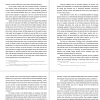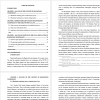Тема: Research on the application of blockchain technology in the field of private law relations
Закажите новую по вашим требованиям
Представленный материал является образцом учебного исследования, примером структуры и содержания учебного исследования по заявленной теме. Размещён исключительно в информационных и ознакомительных целях.
Workspay.ru оказывает информационные услуги по сбору, обработке и структурированию материалов в соответствии с требованиями заказчика.
Размещение материала не означает публикацию произведения впервые и не предполагает передачу исключительных авторских прав третьим лицам.
Материал не предназначен для дословной сдачи в образовательные организации и требует самостоятельной переработки с соблюдением законодательства Российской Федерации об авторском праве и принципов академической добросовестности.
Авторские права на исходные материалы принадлежат их законным правообладателям. В случае возникновения вопросов, связанных с размещённым материалом, просим направить обращение через форму обратной связи.
📋 Содержание
CHAPTER 1. ANALYSIS OF THE CONCEPT OF BLOCKCHAIN
TECHNOLOGY 7
§1.1. Blockchain technology from a technical point of view 7
§1.2. Blockchain technology as an element of legal reality 12
CHAPTER 2. MODERN IMPLEMENTATIONS OF BLOCKCHAIN
TECHNOLOGY IN THE FIELD OF PRIVATE LAW 20
§2.1. Smart contracts and its application in the field of private law 20
§2.2. Ways of use of blockchain tokens 26
§2.3. Application of blockchain technology in the protection of intellectual property rights 30
CHAPTER 3. ANALYSIS OF SOURCES ON THE LEGAL REGULATION OF
BLOCKCHAIN TECHNOLOGY 34
§3.1. Domestic legal regulation of blockchain technology 34
§3.2. Foreign legal regulation of blockchain technology 40
§3.3. Prospects for legal regulation of blockchain technology in the Russian
Federation 44
CONCLUSION 49
LIST OF REFERENCES: 54
📖 Введение
The development strategies of many states include the transition to a digital economy (hereinafter - DE). So, in the Russian Federation the Digital Economy program is being actively implemented, designed to transform this sphere of social life by the end of 2024. The Digital Economy Agenda program was announced also in the United States, aimed at developing the DE in the following areas: “promoting a free and open Internet worldwide; promoting trust online; ensuring access for workers, families, and companies; and promoting innovation”.2 The European Union also focuses on improving the digital networks and services environment as part of the European Digital Single Market strategy.3
Blockchain technology is young, but it has a wide range of applications - the financial sector, procurement, government, the implementation of intellectual property rights, business, healthcare, science and other areas.
The use of blockchain technology is primarily associated with cryptocurrencies, the most famous of which is bitcoin. However, the scope of blockchain is much wider. This is a universal technology with tremendous opportunities for secure information exchange without intermediaries, the implementation of which helps to make payments online, as well as to register transactions and maintain register of them, reflecting various information about transactions within the supply chain.4
As the author A. A. Garaev points out, the new blockchain technology, thanks to the mathematical algorithm that has been created, makes it possible to create trust between unknown parties in relations without a governing intermediary, while the possibilities of the technology make it possible to change the existing system of governance, including with the participation of the state.5
Thus, with the benefits of transparency, openness, security and safety, this modern technology has the potential to improve many areas of life. However, the legal framework governing blockchain technology needs to be worked through in detail. Law often lags behind the realities of life and the relationships that are actually being shaped by new technologies.6 In particular, the field of private law has witnessed many fascinating phenomena related to blockchain, including smart contracts, cryptotokens and intellectual property (IP) protection. Thus, there is a related question - can all these blockchain phenomena be related to any one option of legal qualification? These factors substantiate the relevance of the problem covered by this study.
The object of research is private law relations. The subject of the study is the norms of Russian and foreign legislation, scientific research and practical implementation in the field of using blockchain technology in private law relations.
The research goal of the study is to generalize and systematize approaches to the legislative regulation of blockchain technology, as well as mark regulative problems, formulate approach to legal regulation of different blockchain phenomena and suggestions on the regulation of this technology in the Russian Federation.
To achieve the goal of the study, the following objectives were set for the study:
1) to learn the technological aspects of blockchain,
2) to analyze domestic and foreign legal sources and scientific literature to form an understanding of the current state of blockchain technology concept and its domestic and foreign legal regulation in the field of private legal relations,
3) to analyze foreign and domestic implementations of blockchain technology in the field of private law to get an idea of the current prospects for using this technology in the field of study,
4) to formulate approach to different blockchain phenomena legal regulation,
5) to formulate proposals for regulating blockchain technology in domestic private law.
...
✅ Заключение
The study of the legal regulatory experience of various countries allows to conclude that there is no unified approach to blockchain legal regulation. Undoubtedly, blockchain technology poses new challenges for existing legislation both at the national and international levels. Because of the specific nature of this technology, the development of the approach to blockchain legal regulation requires detailed study. At the same time, it is necessary to take into account the prospects for the economic development of countries so as not to limit it through legal mechanisms.
It is important to note that Russia lacks a legal framework for the application of blockchain technology. It is a problem as projects involving the application of blockchain technology in both private law relations and the public sector are "outside the legal framework".1
Thus, there is a need for detailed elaboration and legislative approval of the rules governing blockchain-related relationships.
Due to the rapid development of blockchain technology, legislators need to pay special attention to the regulation of this technology in Russia, since its novelty entails certain risks associated with the following factors:
1) insufficient knowledge of this technology,
2) insufficient regulation at the legislative level due to the lack of specific formulations that take into account the subtleties of this innovative technology and opportunities.
These associated with the increase in the number of decentralized applications problems should be addressed in a comprehensive manner at different levels, including the following:
1) science,
2) education (including legal, financial, etc.),
3) media,
4) legislation.
It is noted that the development of a terminological framework is a priority, as definitions are the supporting structures of the relevant legal regime (civil, tax, currency, etc.). And in the absence of a clear definition of the legal phenomenon, there is uncertainty about the scope of the legal regime pertaining to it. Moreover, the absence of a defined term in a law or regulation may give rise to disputes regarding the legality of a particular phenomenon, the legitimacy of actions with it, which may have a negative impact on the implementation of blockchain-related technologies.2
Hence, the elaboration and in-depth analysis of the definition of blockchain will allow the development of adequate legal regulation that takes into account the specifics of this technology, as well as economic and social factors.
Blockchain technology offers secure transaction processing without intermediaries, reducing security risks and improving data integrity. Potential applications could simplify business processes, streamline supply chain management, and enhance data privacy.
Thus, there are many different blockchain phenomena in various fields. Smart contracts use blockchain technology to automatically enforce contract terms, eliminating the need for intermediaries like lawyers and banks. This could revolutionize private law relations, increasing efficiency and transparency while reducing costs.





